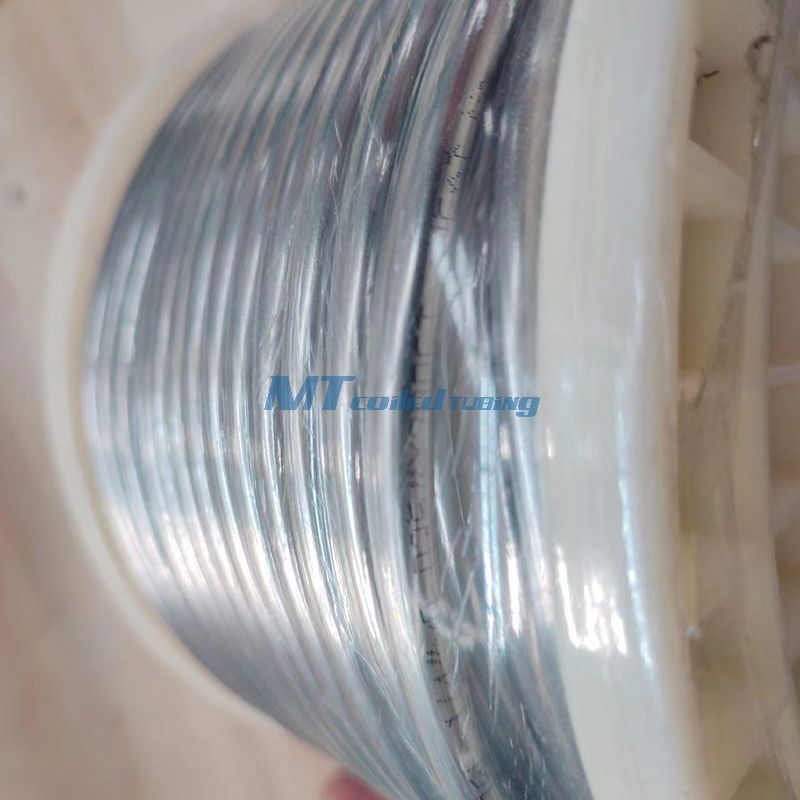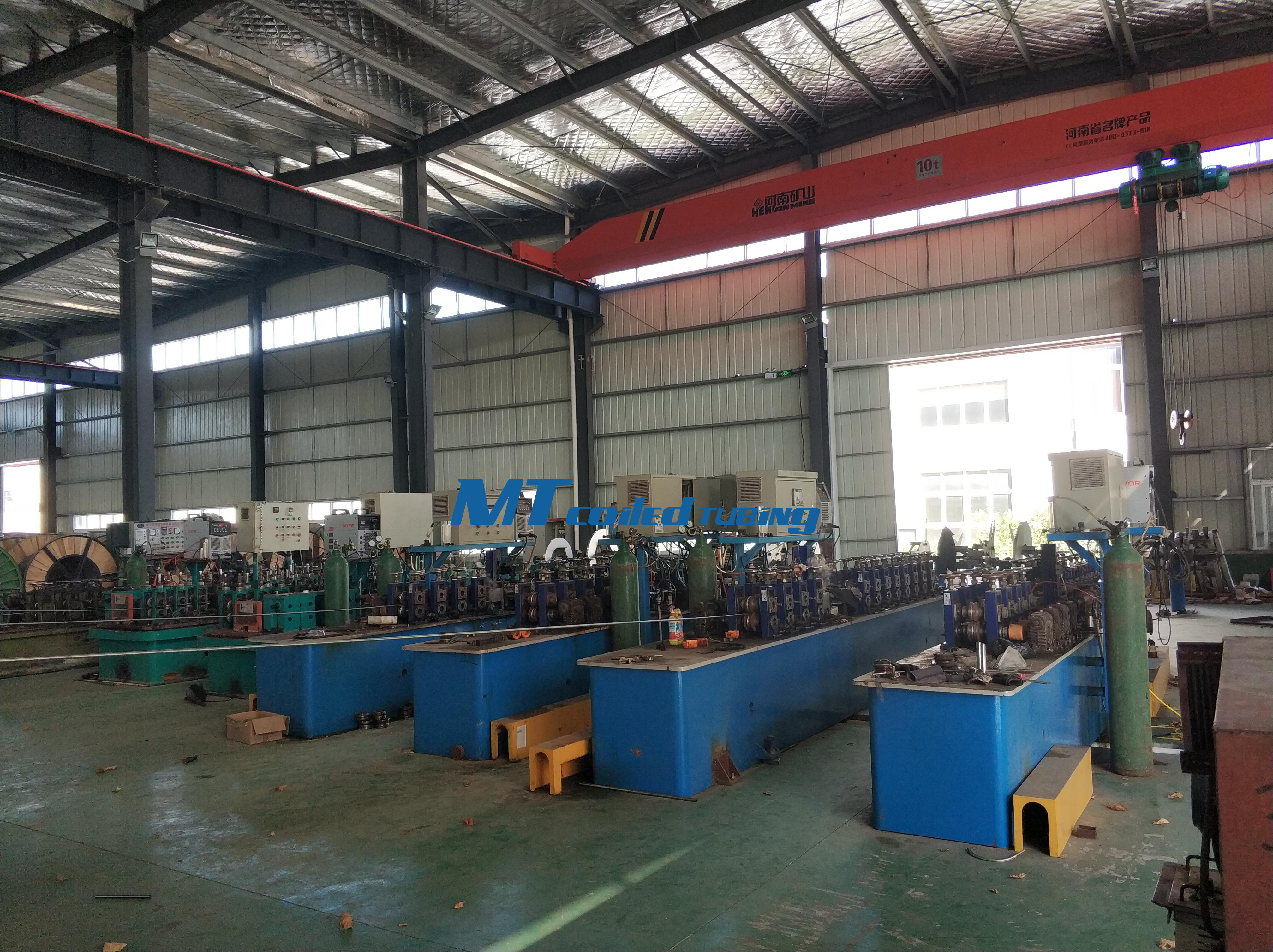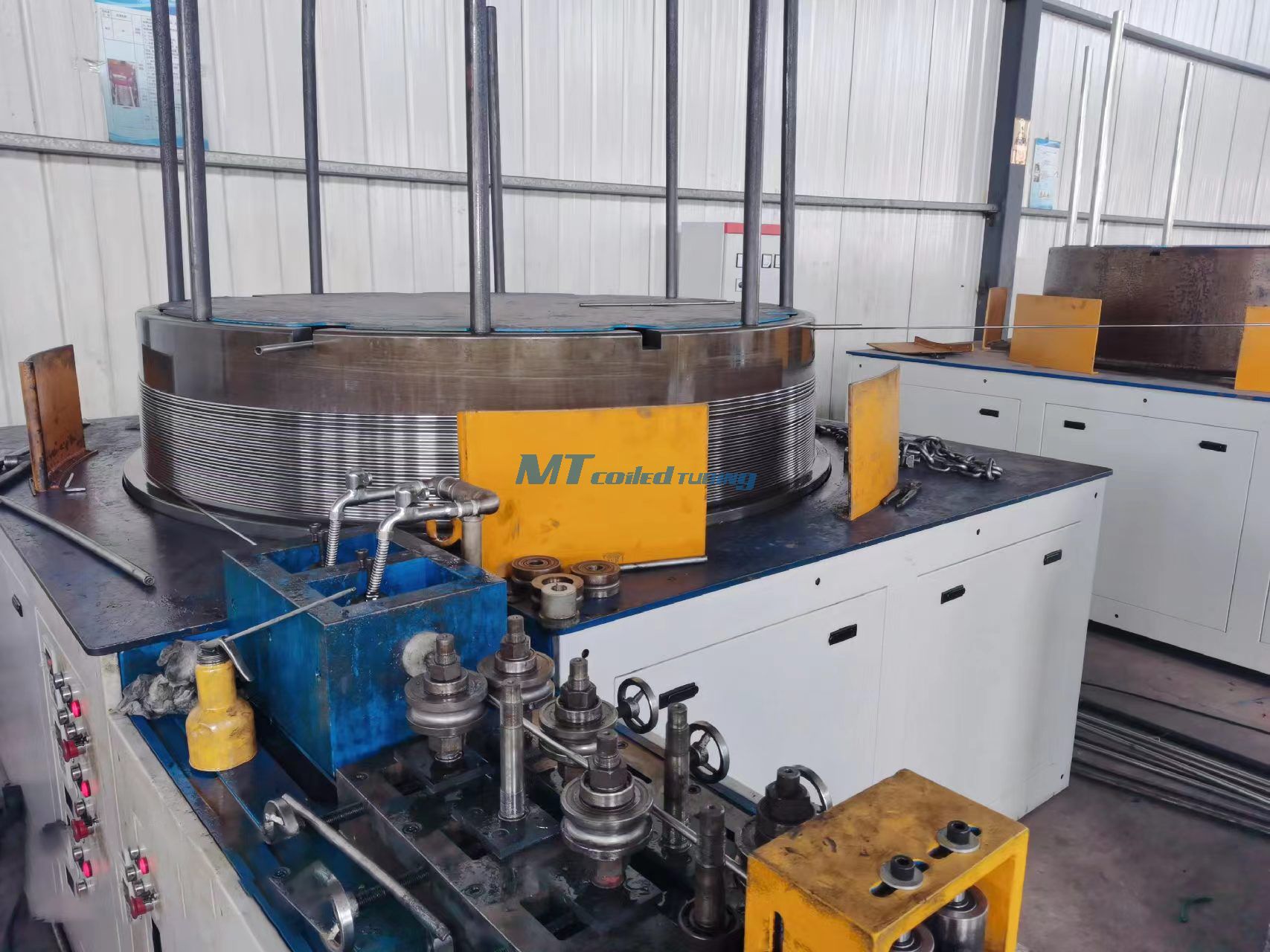| Availability: | |
|---|---|
| Quantity: | |
Nickel Alloy 825/625 Sturdy Construction Seamless Coiled Tubing for Aerospace
Nickel Alloy 625 Chemical composition
| % | Ni | Cr | Mo | Fe | C | Mn | Si | P | S | Co | Nb+Ta | Al | Ti |
| min | 58.0 | 20.0 | 8.0 | 3.15 | |||||||||
| max | 23.0 | 10.0 | 5.0 | 0.10 | 0.50 | 0.50 | 0.015 | 0.015 | 1.00 | 4.15 | 0.40 | 0.40 |
Physical properties
| Density | 8.44 g/cm3 |
| Melting range | 1290-1350℃ |
 |  |
Features: Nickel alloy 625 has excellent strength at temperatures up to 816℃. At higher temperatures, its strength is generally lower than that of other solid solution strengthened alloys. Inconel 625 has good oxidation resistance at temperatures up to 980℃ and shows good resistance to aqueous corrosion, but is relatively moderate compared to other more capable corrosion resistant alloys.
Applications: Chemical process industry and sea water application. Alloy 625 is used in short term applications at temperatures up to 816℃. For long term service, it is best restricted to a maximum of 593℃, because long term exposure above 593℃ will result in significant embrittlement.
 |   |
Nickel Alloy 825/625 Sturdy Construction Seamless Coiled Tubing for Aerospace
Nickel Alloy 625 Chemical composition
| % | Ni | Cr | Mo | Fe | C | Mn | Si | P | S | Co | Nb+Ta | Al | Ti |
| min | 58.0 | 20.0 | 8.0 | 3.15 | |||||||||
| max | 23.0 | 10.0 | 5.0 | 0.10 | 0.50 | 0.50 | 0.015 | 0.015 | 1.00 | 4.15 | 0.40 | 0.40 |
Physical properties
| Density | 8.44 g/cm3 |
| Melting range | 1290-1350℃ |
 |  |
Features: Nickel alloy 625 has excellent strength at temperatures up to 816℃. At higher temperatures, its strength is generally lower than that of other solid solution strengthened alloys. Inconel 625 has good oxidation resistance at temperatures up to 980℃ and shows good resistance to aqueous corrosion, but is relatively moderate compared to other more capable corrosion resistant alloys.
Applications: Chemical process industry and sea water application. Alloy 625 is used in short term applications at temperatures up to 816℃. For long term service, it is best restricted to a maximum of 593℃, because long term exposure above 593℃ will result in significant embrittlement.
 |   |